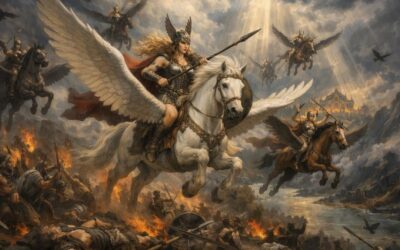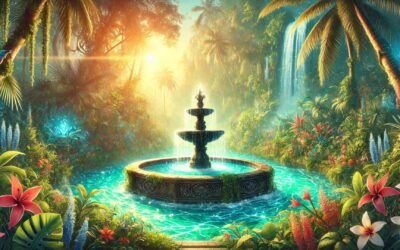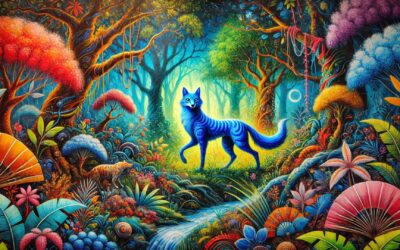In the bustling city of Uruk, where ziggurats touched the azure sky and the Euphrates River whispered tales of yore, there lived a king unlike any other – Gilgamesh. With the strength of a god and the spirit of a man, his might was unmatched, yet his heart longed for an adventure that would quench his undying thirst for knowledge and power.
Beneath the shade of date palms, the people of Uruk often spoke of their king’s prowess. However, with great power came arrogance. Gilgamesh’s actions weighed heavy on his subjects, and their pleas reached the heavens. The gods, in their wisdom, decided to craft a being, Enkidu, from clay and water – wild and free, a mirror to Gilgamesh’s strength and vigor.
As fate intertwined their paths, Enkidu, untamed and spirited from the wild, and Gilgamesh, the formidable ruler of Uruk, clashed. Yet, from the fire of their confrontation, the ashes of a deep friendship arose. The city that once echoed with tales of their individual might now sang praises of their camaraderie.
One evening, as the golden hues of sunset painted the Mesopotamian landscape, Gilgamesh expressed a desire that had been burning within him. A longing to make their names immortal, to embark on an adventure that the world would remember. And so, the duo decided to journey to the Cedar Forest, a realm guarded by the fearsome Humbaba. With each step into the forest’s depths, the air grew dense, and the shadows, darker. Yet, with combined strength and wit, they defeated Humbaba, carving their victory into the annals of time.
However, every action has consequences. Their triumph did not sit well with the gods. As a divine retribution for their audacity, the gods decided that one of them must pay the ultimate price. Enkidu, the wild man who had become the heart’s friend of a king, met his untimely demise, leaving Gilgamesh shattered.
The grief that enveloped Gilgamesh was profound. It wasn’t merely the sorrow of losing a friend but the realization of his own mortality. With a heavy heart and a soul yearning for answers, Gilgamesh embarked on his most significant quest yet – the search for immortality.
His journey led him to the ends of the earth, facing challenges that tested his very being. He crossed desolate landscapes, encountered divine beings, and even met Utnapishtim, the Mesopotamian Noah, who had survived the great flood and been granted eternal life. From him, Gilgamesh learned of a plant at the bottom of the sea that held the power to renew youth.
With renewed hope, Gilgamesh retrieved the plant, but fate had another twist in store. As he rested by a pool, a serpent stealthily approached, stealing the plant and shedding its skin, symbolizing rebirth. The irony was not lost on Gilgamesh. He had the secret to immortality within his grasp, only to lose it to the whims of fate.
As he returned to Uruk, the weight of his journey and the lessons learned transformed him. He may not have attained physical immortality, but he realized that true immortality lay in the legacy one leaves behind, in the tales told by generations, and in the hearts touched.
The winds of Mesopotamia still whisper the tale of Gilgamesh – of a king who sought power and adventure but found wisdom and understanding. A story of friendship, loss, and the eternal human quest for meaning. And as the rivers flow and the sands shift, the epic remains, immortal in its essence, a testament to humanity’s timeless journey.










0 Comments